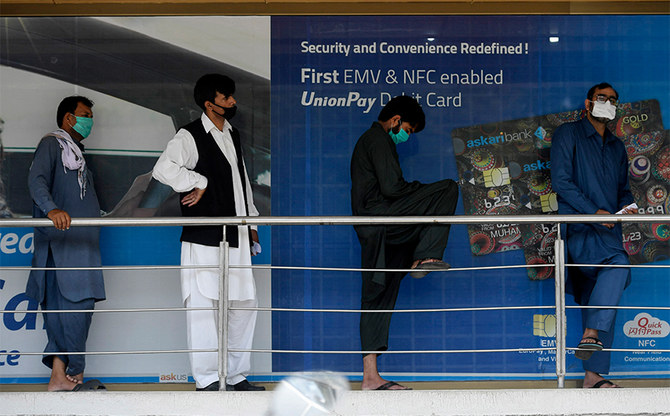KARACHI: Backed by expansion in digital payment infrastructure as well as the emergence of new payment aggregators, mobile banking, Internet banking and e-commerce transactions more than doubled in Pakistan during the third quarter of the current fiscal year compared to the same period last year, the central bank said on Monday.
The bank said the performance indicated strong growth in the ecosystem of digital financial transactions in the country.
“The volume of mobile banking transactions reached 51.7 million, up 144 percent, valuing at Rs1.3 trillion, up 178 percent, compared to 21.2 million transactions valuing Rs 467.5 billion in the same quarter, last year,” the State Bank of Pakistan (SBP) said in its Quarterly Payment System Review (QPSR) for the third quarter, January–March 2021, of fiscal year 2020-21.
‘During Q3FY21, bank customers performed 309.5 million e-banking transactions, valuing Rs22.5 trillion and registering growth rates of 31 percent by volume and 29 percent by value over the same quarter last year,” the central bank said, adding: “Most of the uptake in e-banking transactions was seen in Internet banking and mobile banking transactions.”
“Expansion in digital payment infrastructure as well as emergence of new payment aggregators have also played their role in this growth,” the bank said.
The number of Internet and mobile banking users has also been increasing significantly, up 30.5 percent and 20.3 percent respectively during Q3FY21, compared to the same period last year, according to SBP.
The volume of mobile banking transactions reached 51.7 million, (up 144 percent) valuing Rs1.3 trillion (up 178 percent), compared to 21.2 million transactions valuing 467.5 billion in the same quarter last year, SBP data said.
The number of registered mobile phone banking users reached 9.8 million, showing an increase of 20 percent from the same period last year. Similarly, 24.5 million Internet banking transactions valuing Rs1.5 trillion were recorded during this period compared to Rs 0.75 trillion in the same quarter last year, registering a growth of 74 percent by volume and 109 percent by value.
In response to SBP’s measures to incentivize the installation of Point of Sale (POS) machines to facilitate digital payments through debit or credit cards, the number of POS machines has shown a substantial growth of 37 percent when compared with the same period last year.
“On these POS machines, 25 million card-based transactions amounting to Rs 124 billion were processed showing an increase of 28 percent by volume and 21 percent by value compared to the same quarter last year,” the central bank said.
The increase in the number of POS machines this year can be attributed to measures SBP took early last year, which included a reduction in the interchange fee on debit card payments.
Non-cash based e-commerce transactions also increased substantially in the country during Q3FY21, with merchants processing 5.6 million transactions digitally, amounting to Rs15.3 billion, compared to 2.8 million transactions valuing Rs 7.1 billion in Q3FY20, showing an increase of 100 percent by volume and 115 percent by value from the last year.
Total number of payment cards issued in the country stood at 44.5 million out of which 28.6 million are debit cards and 1.7 million are credit cards.
















